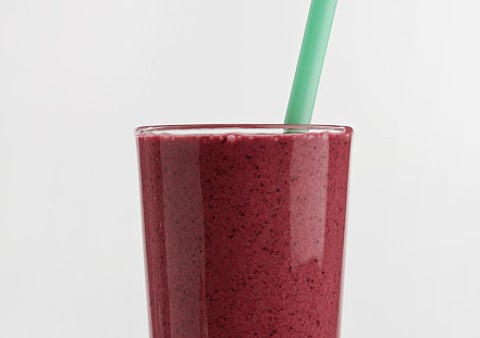Make your smoothies healthful
Here’s how you can make your summer fruit drink nutritious and rich in protein and fibre

As our days begin to warm up, smoothies can be a great way to pack in important nutrients. But there are many types out there, and not all of them are good for you.
When we think of smoothies, we often think of fruit and ice. But pay attention to ingredients; the term “smoothie” doesn’t mean healthful. Some restaurants’ concoctions are really glorified desserts, more similar to milkshakes. And on the other end of the spectrum, some store-bought protein shakes advertise their healthfulness but can be heavily processed with mystery ingredients.
According to the Academy for Nutrition and Dietetics, using protein supplements is no more or less effective than getting your protein from food, but they are typically more expensive and can lack nutrients found in whole foods. So how do you to make a nutritious, balanced smoothie? Start with your protein source.
Nutrient profile: Almonds
In any form — milk, butter or whole — almonds provide a combination of fibre, protein and fat that provides satiety, making them ideal for weight management. Just remember to pay attention to portion size, because they are calorie-dense. Almonds are an excellent source of Vitamin E and manganese and a good source of magnesium, copper, phosphorus and fibre. They also contain calcium, folate and potassium.
According to the Academy of Nutrition and Dietetics, nuts such as almonds are not only cholesterol-free but have cholesterol-lowering properties and are rich in heart-healthy monounsaturated and polyunsaturated fats. In fact, the Food and Drug Administration has approved a health claim for food labels that states, “Eating 1.5 ounces (42g) per day of most nuts as part of a diet low in saturated fat and cholesterol may reduce the risk of heart disease”. These nuts include almonds, hazelnuts, peanuts, pecans, some pine nuts, pistachios and walnuts.
But nuts aren’t the only way to get protein, fibre and healthful fats in a smoothie. Some other smart options:
Greek yogurt
Raw buckwheat groats (soaked overnight and rinsed)
Chia or flax seeds
Hemp seeds
Avocado
BERRY ALMOND SMOOTHIE
We all know that eating a healthful breakfast sets the tone for the entire day. This gluten-free, vegan smoothie is sweet, thick, satisfying and creamy without that chalky aftertaste that often accompanies protein-powder-based smoothies.
With only natural ingredients, it offers 7g of protein and 6g of fibre per serving.
The base is frozen berries. Because they are frozen, the smoothie can be enjoyed any time of year. Berries are known for being packed with antioxidants, fibre, Vitamin C, potassium and folate. (Just be sure to find berries that aren’t artificially sweetened.) And one last benefit for busy mornings: this nutritious breakfast takes less than five minutes to make.
Recipe
2 servings (makes 2 1/2 cups)
This smoothie offers a complete breakfast in under three minutes, without using expensive protein powders.
Ingredients
1 cup frozen unsweetened strawberries
1 cup plain unsweetened almond milk, or more as needed
1 cup frozen unsweetened mixed berries, such as raspberries, blueberries and blackberries, or more as needed
1/4 cup slivered almonds
2 tbs raw almond butter
Steps
Combine the frozen strawberries and the cup of almond milk in a blender; puree for 1 minute or until smooth.
Working in two or three batches, add the frozen mixed berries, pureeing for 1 minute between each addition. Add splashes of almond milk if the mixture becomes too thick to blend.
Add the almonds and almond butter; puree for 15 seconds.
Taste for texture; the consistency should be smooth and thick. If the smoothie seems thin, add frozen berries. Serve right away.
Nutrition per serving: 270 calories, 7g protein, 26g carbohydrates, 18g fat, 2g saturated fat, 0mg cholesterol, 0mg sodium, 6g dietary fibre, 10g sugar
— Washington Post



